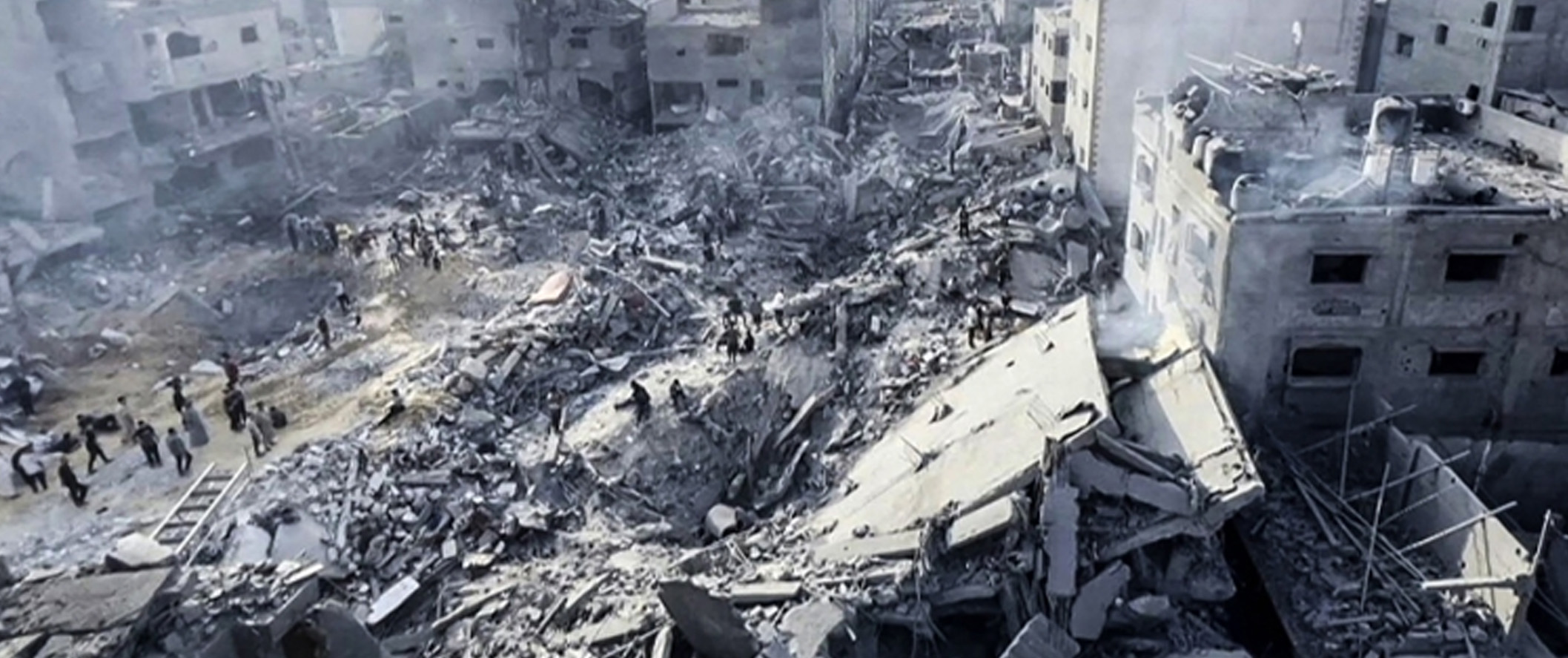Gaza| WTNS | July 20:In Gaza, hunger has a face. It is the face of a child too weak to cry, a mother boiling grass to keep her family alive, a father burying his son not from bombs but from starvation.
This week, a chilling admission from the Israeli Broadcasting Corporation (KAN) confirmed that over 1,000 humanitarian aid trucks loaded with food, medicine, and essential supplies meant for the starving people of Gaza were deliberately destroyed by the Israeli military. The supplies were deemed “expired” after being held at crossings for weeks, left to rot under the scorching sun. The Israeli military justified the action by citing failures in the “aid distribution mechanism” inside Gaza.
But for the 2.3 million besieged residents of Gaza, the expiration date was not on the food it was on their hope.
Breadlines Replaced by Graves
In the ruins of Gaza, mothers feed their children weeds and crushed corn husks. Doctors speak of children collapsing from hunger, their limbs limp, their skin clinging to bone. Entire families are living on animal feed and boiled herbs. In shelters, elders faint from dehydration, while the young slowly wither away.
According to Gaza’s Ministry of Health, at least 122 people mostly children have died from starvation-related causes. Humanitarian experts say this number is likely far lower than the reality, as most areas are now beyond the reach of aid groups, and many deaths go unrecorded.
A recent survey reveals 11.5% of Gaza’s children suffer from severe acute malnutrition a rate that constitutes a full-blown famine under global standards.
Still, instead of life-saving food reaching them, the convoys were bulldozed into the ground. Potatoes, rice, antibiotics, and infant formula all reduced to ash and dust while the world looked on.
Starvation as a Weapon
This is not a breakdown of logistics. It is not a matter of poor coordination. Human rights groups and UN officials are now speaking openly of a darker strategy: the deliberate use of starvation as a tool of war.
Michael Fakhri, the UN Special Rapporteur on the Right to Food, stated bluntly, “Israel is not just obstructing aid it is using starvation as a weapon. This must be recognized as collective punishment, and possibly as part of a broader genocidal policy.”
Fakhri called for immediate sanctions, warning that the international community’s failure to act is enabling mass suffering. “Condemnations are no longer enough,” he said. “People are dying while the food meant to save them is being buried.”
This crisis is not new. For nearly two decades, Gaza has lived under blockade, but since October 2023, the situation has deteriorated into an open-air siege. Over 59,000 Palestinians have been killed since the war began. More than 142,000 have been injured, the majority women and children.
Global Protests, Official Paralysis
The world has not been entirely silent. Protests have erupted across major cities—London, Paris, New York, Istanbul, Johannesburg calling for an immediate ceasefire and full humanitarian access to Gaza.
But the cries from the streets have not translated into policy. Inside international halls of power, hesitation and double standards have left Gaza to starve.
The Israeli government continues to deny responsibility, claiming the destruction of aid was a “necessary” measure due to logistical failures inside Gaza. Critics call this narrative hollow, given that much of Gaza’s civil infrastructure has been systematically targeted by Israeli bombing.
Haaretz, one of Israel’s own leading newspapers, reported that 1,000 Palestinian children were killed in Gaza over the past month alone.
“They waited for bread,” a grandmother in Rafah said through tears. “Instead, they got bombs.”
A Moral Collapse
In a powerful address to Amnesty International’s Global Assembly in Prague, UN Secretary-General António Guterres did not hold back.
“This is not just a humanitarian crisis,” he said. “It is a moral crisis that challenges the conscience of the world.”
He shared that over 1,000 Palestinians have died just trying to access food since May—not in battle, but in desperation.
Guterres called for:
• An immediate and permanent ceasefire
• The unconditional release of all hostages
• Full humanitarian access to all parts of Gaza
He condemned the international community’s apathy, saying, “I cannot explain the level of indifference we see from too many. The lack of compassion. The lack of truth. The lack of humanity.”
A Bleeding Land, A Starving Future
In Yemen, the Ansarallah movement warned of further escalations in response to Israel’s campaign of starvation. Their spokesperson, Yahya Saree, said the group is “considering new options” to stop the suffering in Gaza.
Back in Gaza, the options are already gone. Parents line up for hours in the hope of a scrap of bread. Children cry not from pain, but from the slow fade of hunger. In many homes, meals have become stories something to remember, not expect.
This is no longer just a war. It is a war on survival, on childhood, on the very concept of humanity itself.
Will the World Answer?
In the fields where food once grew, Gaza now plants graves. Aid convoys arrive only to be turned back or torn apart. Hope is smuggled in plastic bags. Milk is sold in teaspoons. And silence reigns louder than any bomb.
The trucks came with food. They left with nothing. Now, Gaza is doing the same.
Will the world look away again? Or will this be the moment we remember our humanity?



